 Among the addiction therapy programs in Georgia, which have cognitive-behavioral therapy as an essential component? This could be an important question to ask as you look for the ideal addiction treatment program for yourself or someone you care about.
Among the addiction therapy programs in Georgia, which have cognitive-behavioral therapy as an essential component? This could be an important question to ask as you look for the ideal addiction treatment program for yourself or someone you care about.
Cognitive-behavioral therapy emerged in the 1960s, originating in the work of psychiatrist Aaron Beck. The latter noted that certain types of thinking contributed to emotional problems, which he labeled “automatic negative thoughts.” From this, Beck developed the process of cognitive therapy. Earlier behavior therapies had focused almost exclusively on associations, reinforcements, and punishments to modify behavior, while the cognitive approach addressed how thoughts and feelings affect behaviors.
Today, cognitive-behavioral therapy is one of the most well-studied forms of treatment. Searching for cognitive-behavioral therapy options in Athens, Georgia? Contact Athens Addiction Recovery Center today. Call 844.959.4998 or reach out to our team online.
What Is Behavioral Therapy?
Cognitive-behavioral therapy is just one type of behavioral therapy. But what is behavioral therapy, to begin with? It’s actually an umbrella term for types of therapy that treat mental health disorders.
This form of therapy looks to identify and help change potentially self-destructive or unhealthy behaviors. Behavioral therapy is based on the idea that all behaviors are learned and that all behaviors can be changed. The focus of behavioral therapy is often on current problems and how to change them.
Apart from cognitive-behavioral therapy, there are a number of different types of behavioral therapy, including the following:
- Cognitive-behavioral play therapy
- Acceptance and commitment therapy (ACT)
- Dialectical behavioral therapy (DBT)
What Is Cognitive-Behavioral Therapy (CBT)?
Cognitive-behavioral therapy (CBT) is a type of psychotherapeutic treatment that combines behavioral therapy with cognitive therapy. It is meant to help clients learn how to identify and change destructive or disturbing thought patterns that may have a negative influence on their behaviors and emotions. CBT focuses on changing the automatic negative thoughts that can worsen emotional difficulties, depressive episodes, and bouts of anxiety.
CBT is based on several core principles, which include the following:
- Psychological problems are based, in part, on unhelpful ways of thinking
- Psychological problems are based, in part, on learned patterns of unhelpful behavior
- Clients struggling with psychological problems can learn better ways of coping with them, thereby becoming more effective in their lives
CBT is extremely popular. It’s often a component of addiction treatment programs, and CBT sessions typically focus on current problems of the client, and how to solve them. The long-term goal is to build thinking and behavioral patterns that help a client achieve a better quality of life.
When Should You Consider a Cognitive-Behavioral Therapy Program?
CBT is an effective form of therapeutic treatment that challenges unhelpful thinking and behaviour patterns. It’s helpful in reducing distress and improving the ability to cope. Numerous studies suggest that CBT leads to significant improvement in daily functioning. CBT has also been demonstrated to be as effective as, or more effective than, other forms of therapeutic care or psychiatric medications.
This form of therapy is most effective for the treatment of anxiety and moderate depression, though evidence also supports the use of CBT to treat the following:
- Addiction
- Anger control issues
- Bipolar disorder
- Eating disorders
- Panic attacks
- Personality disorders
- Phobias
CBT can be used as a short-term treatment to help clients focus on present thoughts and beliefs. Many CBT practitioners actually place an emphasis on helping clients learn to be their own therapists. Clients are taught to develop coping skills, through which they can learn to change their own thinking, problematic emotions, and behaviors.
Ready to Learn More About Athens Recovery’s Cognitive-Behavioral Therapy Options?
If you’re looking for cognitive-behavioral therapy options in Athens, Georgia, contact Athens Addiction Recovery Center today. Reach out to our team online or call 844.959.4998.
